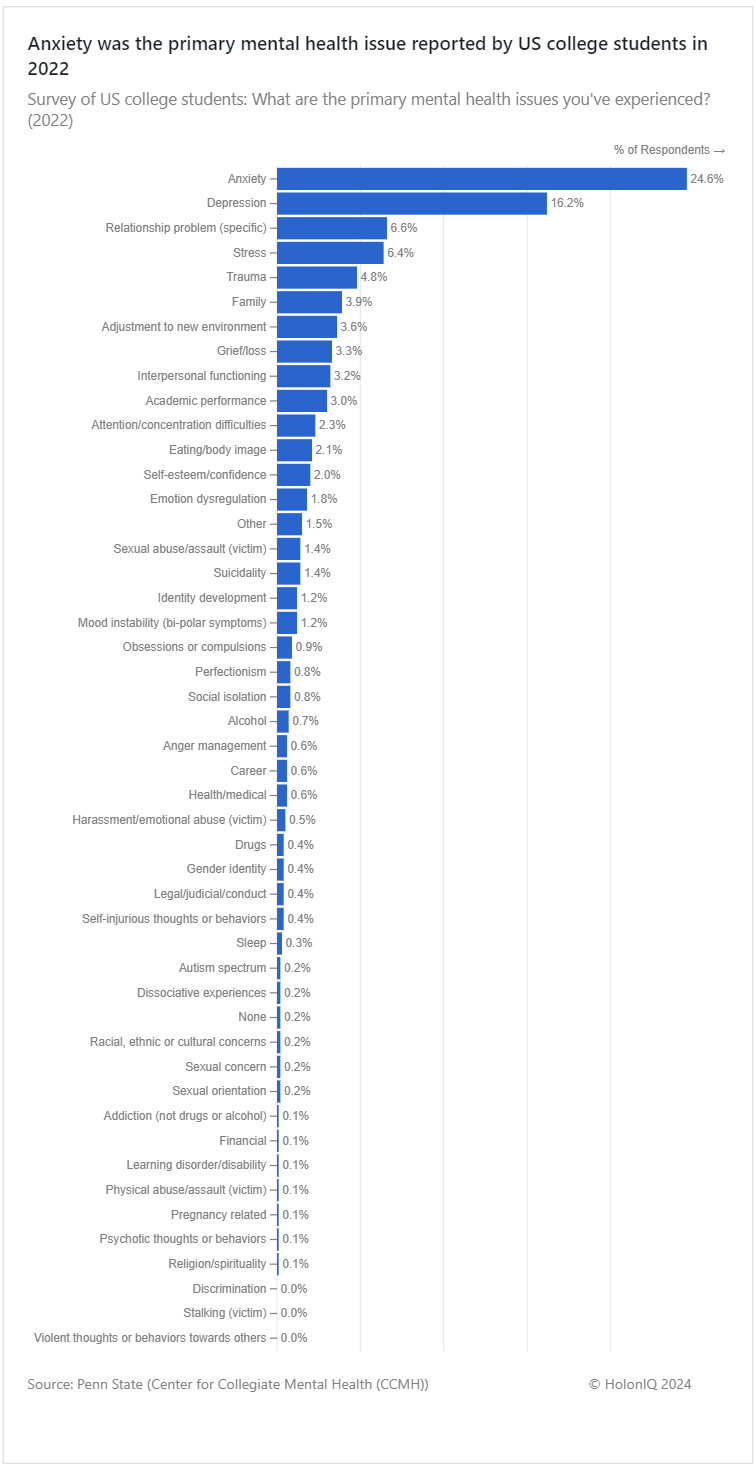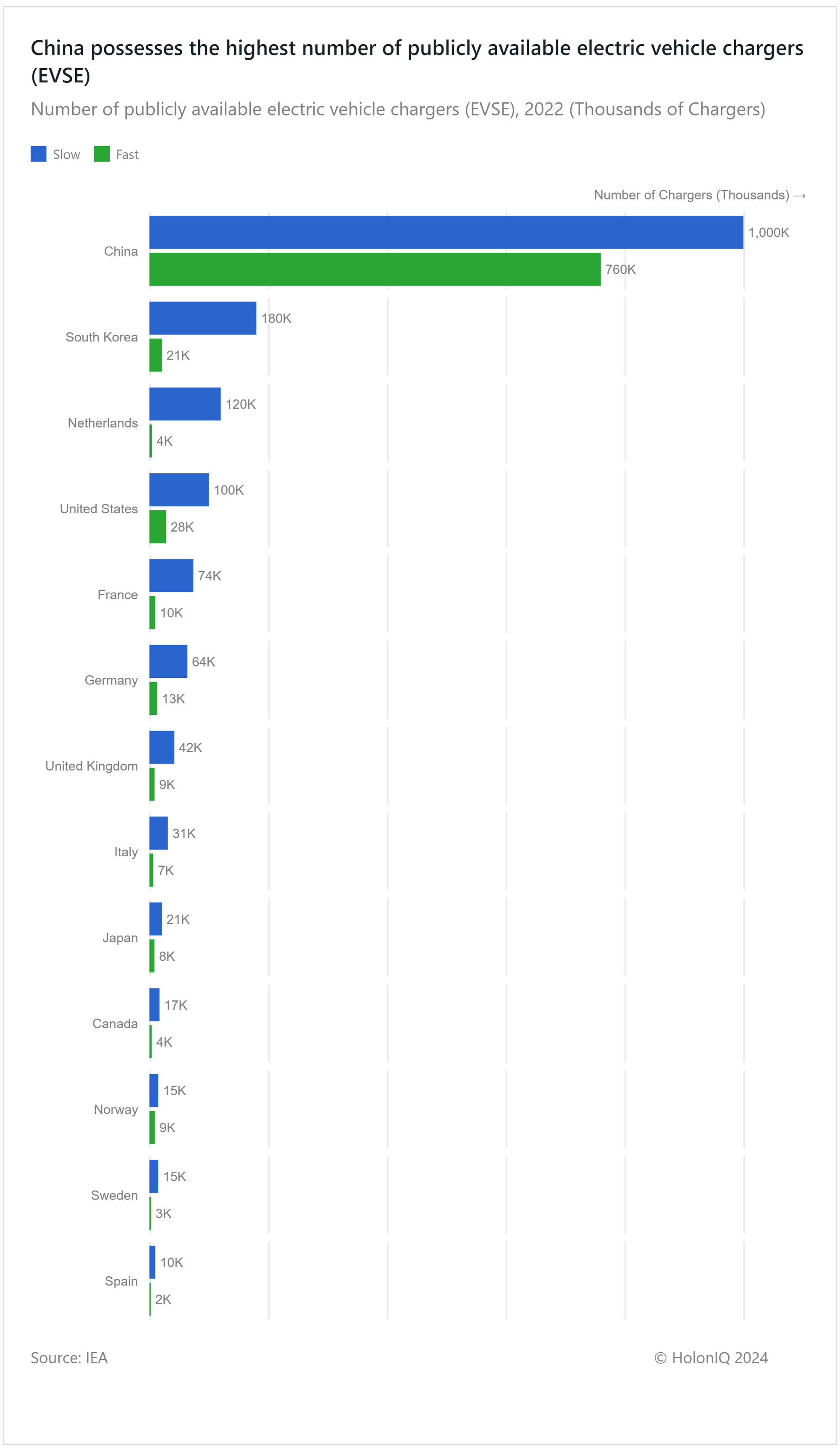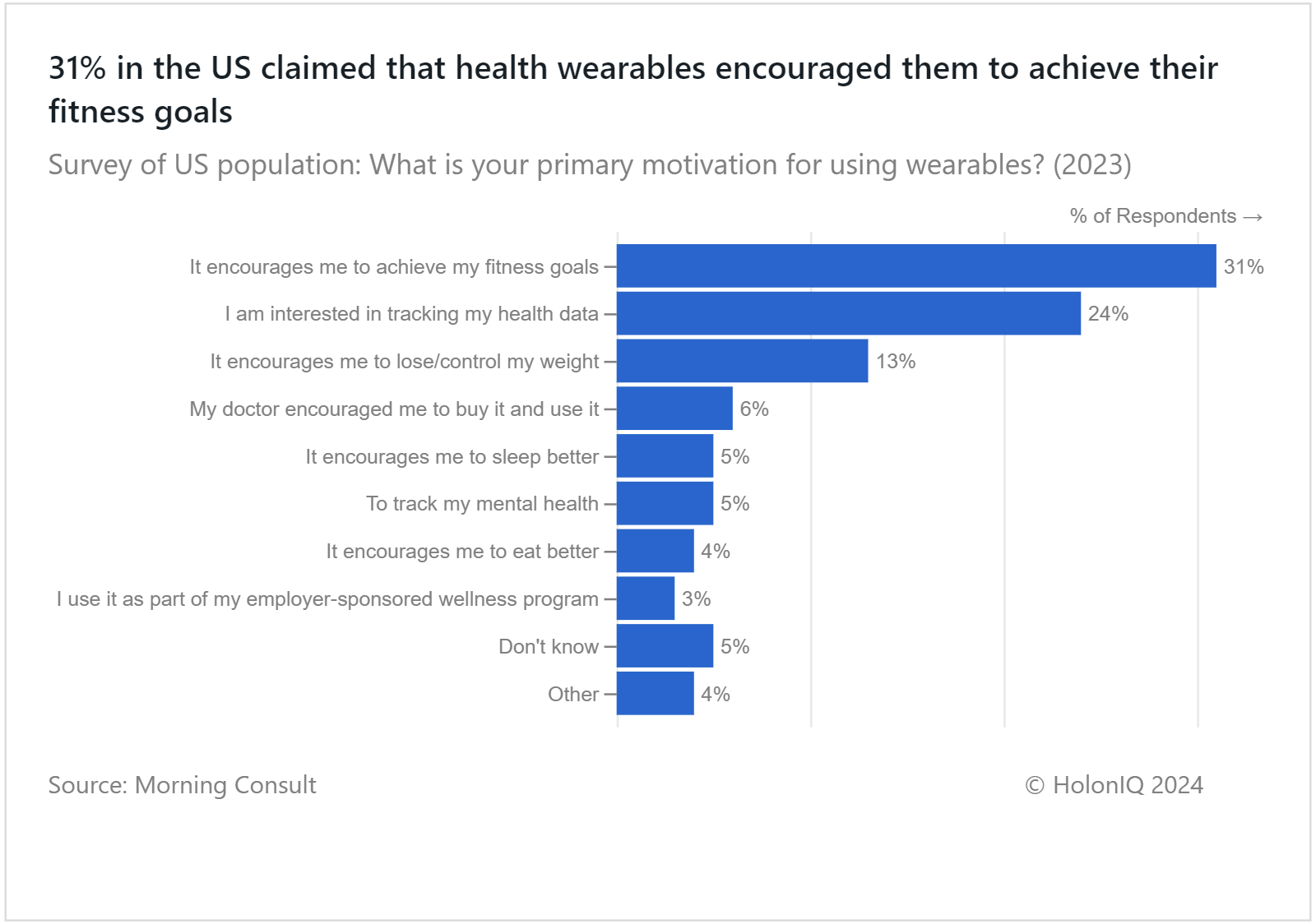🔌 1.8M EV Chargers. Student Anxiety. Fitness Wearables.
Chart of the Day #64 looks at Student Mental Health Challenges in the US, EV Chargers, and Fitness Wearables.
Talofa👋
Indian Oil Corporation Limited (IOCL) has placed an order to install over 1400 EV fast chargers throughout India. These chargers will support the simultaneous charging of two vehicles and feature dynamic load-sharing capabilities. A recently published study found that long-term exposure to green environments is linked to a decrease in the risk of depression and anxiety.
Today's Topics
😔 Anxiety and Depression. 25% of US college students suffered from anxiety
🔌 EV Chargers. China leads South Korea with 9x more EV chargers
⌚ US Wearables. Wearables encourage 31% to attain fitness goals
For unlimited access to over one million charts, request a demo.
😔 25% of US College Students Have Suffered From Anxiety

A survey reveals that anxiety prevails as the primary mental health issue faced by US college students. College students face a myriad of anxiety-inducing challenges, from navigating the transition away from home to managing social interactions, academic pressures, and peer expectations. This likely impacts students' self-perception and interpersonal relationships. Studies also reveal that the number of students seeking counseling has reached record-high levels, underscoring the importance of mental health services on campuses. Students struggling with mental health issues are twice as likely to drop out and providing these resources can also help universities to increase student retention rates.
🔌 China Leads South Korea with 9x More EV Chargers

China has the highest number of EV chargers globally, with 1.8 million chargers, and is home to the largest EV market. China saw an 82% rise in new EV sales in 2022, constituting nearly 60% of global EV purchases and over half of the electric cars on roads worldwide. The number of EVs per charger is 7 in China, lower than the global ratio of approximately 10 to 1. China remains ahead of Europe in this metric as well.
South Korea ranks second in EV charging availability with around 200K chargers, and interestingly, at a ratio of roughly 2 EVs per charger, highlighting the efforts made to encourage EV adoption. Deploying fast charging options can decrease the number of public chargers needed in a given area and increase the number of times a charger can be used in a day. A fast charger takes, on average, 30 minutes to charge a battery to 80% from 10%, while the same takes 6 to 8 hours with a slow charger. This would ensure adequate charger availability for each electric vehicle and lower set-up and maintenance costs.
⌚ Wearables Encourage 31% to Attain Fitness Goals

Health wearables in the US have gained popularity, with nearly one-third of Americans relying on devices like smartwatches and fitness bands to monitor their health and fitness progress. Gen X consumers are leading the change in adopting these devices compared to other age demographics. Beyond simply tracking exercise, wearables offer insights into sleep patterns and heart rate variability, aiding users in optimizing their overall well-being. However, challenges such as cost and accessibility persist, highlighting the need for equitable access and regulatory oversight to ensure that these technologies benefit all segments of society.
Like getting this newsletter? For unlimited access to over one million charts, request a demo.
Thank you for reading. Have a great week ahead!
Have some feedback or want to sponsor this newsletter? Let us know at hello@holoniq.com
